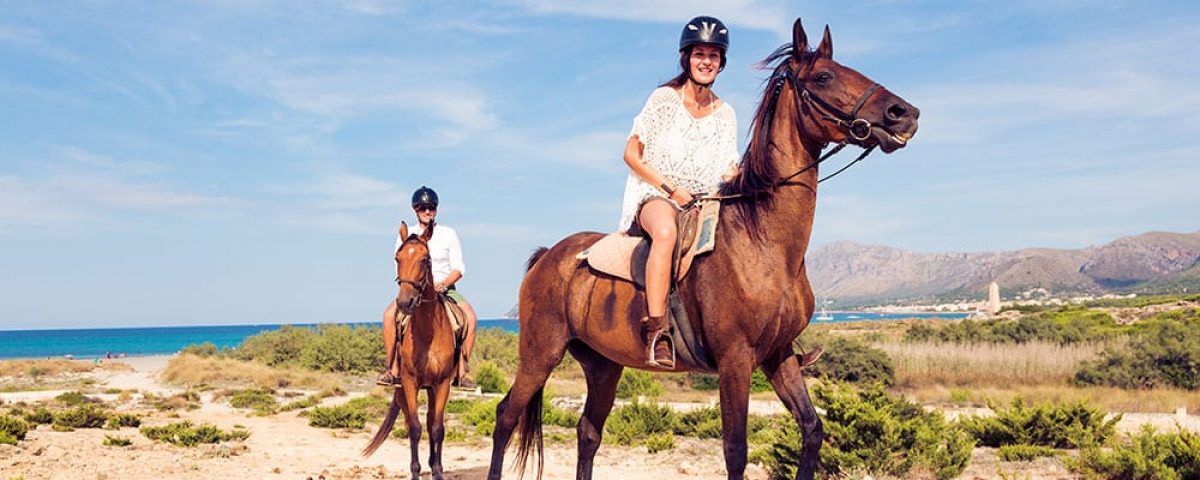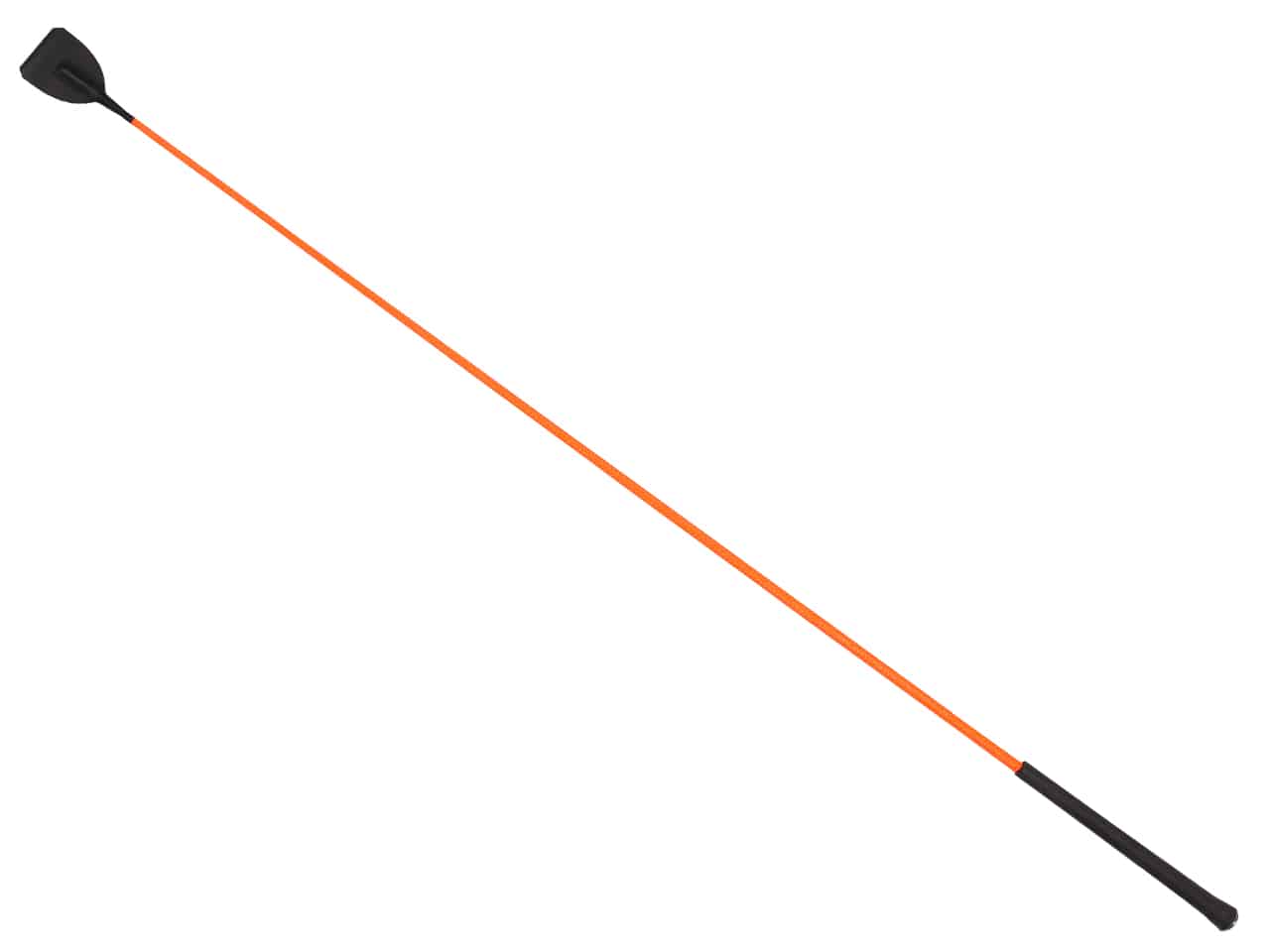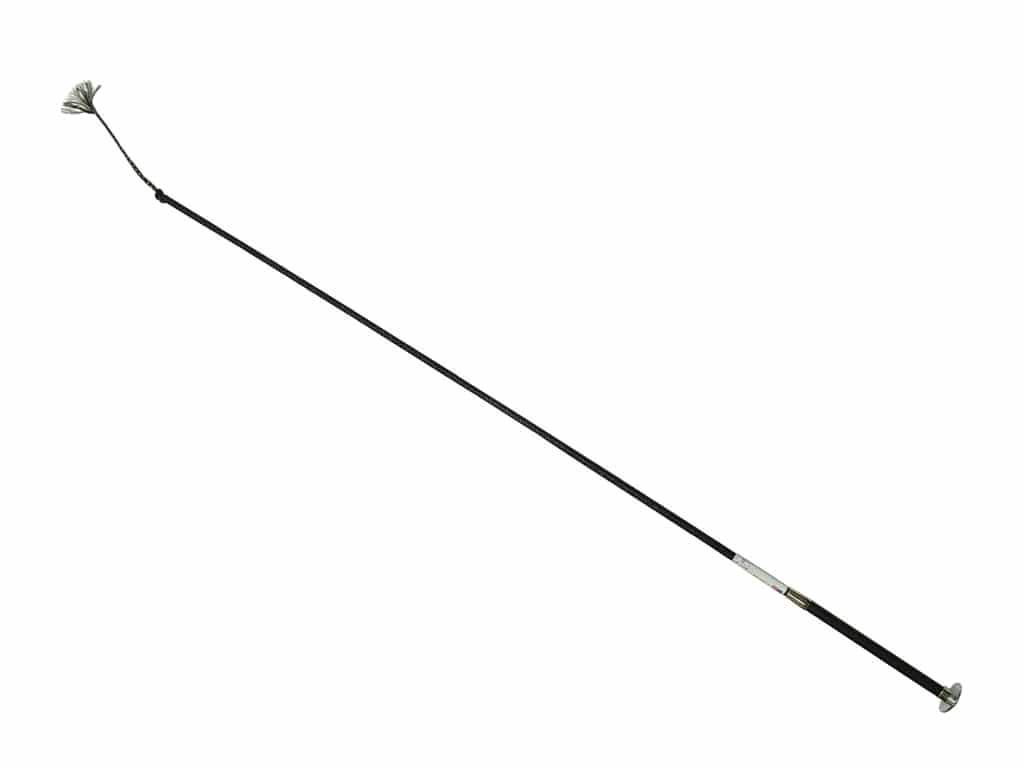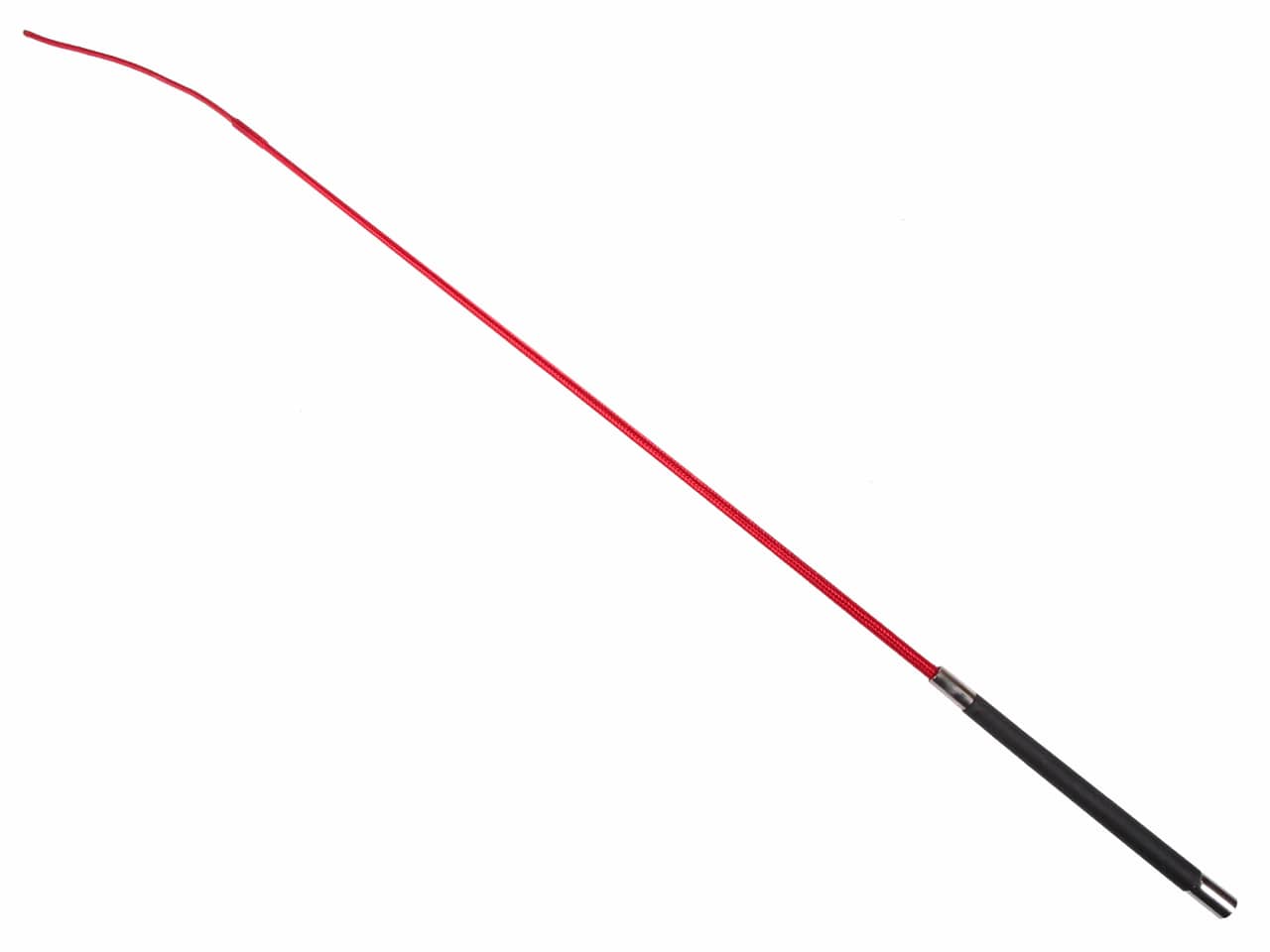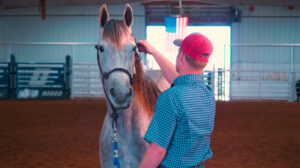“There is something about the outside of a horse that is good for the inside of a man.” Over the years, this famous quote has been attributed to both Winston S. Churchill and Ronald Reagan. But regardless of who said it, there is a lot of truth behind these words. Riding a horse is not just good for your physical well-being, it can also be very beneficial to your mental and emotional health.
Is Horseback Riding Good Exercise?
You probably know someone who has pooh-poohed the notion that riding a horse is actual exercise. That person probably once sat astride a gentle rental horse for a plodding nose-to-tail ride, which has left them with the opinion that riding requires about as much effort as trying to sit on a slowly moving couch. But anyone who has actually spent meaningful time astride a horse knows that riding can be very good exercise, especially for your legs and core.
In fact, according to research conducted by a professor for Texas A&M, you can burn approximately 200 calories by taking a horse through its paces for about 45 minutes at a walk, trot and canter. That’s very comparable to dancing for 40 minutes or swimming for 30 minutes — both of which will also burn approximately 200 calories. And if you participate in more strenuous forms of riding, such as reining and cutting, you can expect to burn even more calories. For example, the Texas A&M study claims that equestrians riding cutting horses, with all of their sudden and sharp moves, can burn approximately seven calories a minute.
Still not convinced that riding is true exercise? Then check out these stats. According to the Compendium of Physical Activities, which measures the MET (metabolic equivalent) of various activities, riding a horse at a gallop is equivalent to 7.3 METs, which is the same amount that you would expend while rock climbing. Jumping a horse earned the highest MET at 9, which makes that activity even more demanding physically than ice hockey.
In addition, riding a horse is an excellent workout for your core. Staying balanced on top of a horse requires using your abdominal and back muscles, as well as your inner thigh and pelvic muscles. Your arms and shoulders also receive a workout during your time astride a horse. In fact, because horse riding is so good for your core and because it burns a fair amount of calories, some people believe that it is an excellent alternative for high-impact activities, like running or dancing.
And while your friend who once sat aboard a rental horse might not realize it — riders are also true athletes. It takes a lot of strength and coordination, along with the right aids, such as horse whips or the proper bits, to control a large, powerful animal. Horse training can be especially taxing, as you’re trying to encourage or persuade an animal, who may not be in the best of moods or could be confused, to do what you want it to do — which is often the exact opposite of what it naturally wants to do.
Horse Riding is Good for Your Mental Health
It’s not uncommon to hear equestrians joke that horses may be expensive, but that they’re cheaper than a psychiatrist. Riding a horse, they will tell you, keeps them sane and able to deal with their daily lives. But why is that? Well, there are plenty of psychological benefits of horse riding, and being around horses.
For one thing, when you’re around a horse, it’s important to be alert and aware at all times. As you’re grooming a horse, for instance, you’re checking to make sure that everything is okay with your steed, that you aren’t detecting any heat in their legs or any new injuries. And when you’re riding, you’re always on alert: Is the ground you’re riding on level? Will your horse spook at that rock? Should you collect your horse a little before the next jump? So it’s hard to dwell on those day-to-day concerns and worries that so often play in vicious circles in your mind. Data, in fact, from a 2010 study conducted by the British Horse Society showed that riding a horse can actually help an equestrian better manage negative feelings that are related to anxiety and depression.
Of course, if you should somehow manage to lose yourself in worry while you’re riding a horse, your mount is certain to find some unexpected way to wake you up. For instance, if you’re deep in thought while on a trail ride, your steed will likely sense that you’re not paying attention and decide to head home or to run your head into a low branch. Horses seem to have a sixth sense for when their riders aren’t paying attention, and most are not shy of taking advantage of the situation.
Horses Are Good for Your Overall Health
Studies have shown that being around a pet — and for most riders, their horse qualifies as pets — provides a person with amazing health benefits, including decreased blood pressure, lowered cholesterol levels and a lowered risk of heart disease. And if you’re a trail rider who enjoys spending time out in nature’s glory, you’ll reap even more health benefits. A 2010 study published in Environmental Health and Preventive Medicine found that people who walked around in a natural forest setting had lower stress hormone levels and blood pressure afterwards than individuals who made similar walks in a city setting.
Then there is also the love factor. You love your horse, and you’re pretty sure your equine feels something in return. It’s especially wonderful to hear your horse greet you with a great big whinny or a hearty nicker. It probably makes you feel all warm and fuzzy inside. And it’s also good for your health. How? Well, studies have shown that when you feel a loving attachment for another living being, a biological reaction occurs in your brain that can reduce the stress and anxiety levels in your body.
Another benefit of owning a horse? Human companionship. Chances are you’ll be boarding your horse at a barn with other riders, which means that you’ll have more social interactions with humans. This is especially important if you’re shy or someone who typically stays home and has a hard time meeting other people. There’s a good chance you’ll even make a few new friends at the barn.
Horses as Therapy Partners
It may sound strange to say that horses have healing properties, but these magnificent creatures have shown time and time again that they can be wonderful therapeutic partners for those with mental and physical disabilities. Being around horses has also proven to be helpful to those who are dealing with post-traumatic stress syndrome or addiction issues. And for individuals who can’t walk, the horse’s rocking motion can simulate the natural sway of the pelvis during walking. Sitting astride a horse can actually help improve their coordination and to develop better muscle tone.
In addition, learning to control and ride a horse can also give some individuals an enormous sense of accomplishment. This is especially important for someone who might be dealing with a lot of physical setbacks.
And just being around a beautiful, gentle horse can be beneficial. So that’s why miniature horses are now being used to provide emotional support to people at nursing homes, hospitals and even at airports. Yes, you read that right. So if you’re traveling through Cincinnati airport, don’t be surprised if you run into a tiny therapy horse that is being used to help soothe stressed-out passengers before they board their planes.
Get the Benefits without Owning a Horse
As wonderful as horses are, not every person has the financial means or time to own an equine. So does that mean you have to give up on the many benefits of being around a horse? No. There is another option — leasing. By leasing a horse, you will be able to enjoy the companionship and the exercise that a horse can provide but for less (often much less) money than it would cost you to own your own steed. Typically, you’ll only need to purchase a few things (if you don’t already own them), such as your own riding apparel, a saddle and a few training aids, such as your own horse crops.
There are a number of reasons why a horse may be available for lease. The owner may have started a new job, had a baby or left for college. These owners want to keep their beloved mounts, but can’t really afford to have an expensive lawn ornament sitting around. By leasing their horse out, their equine will get much needed exercise and will also be able to partially pay for itself. Leasing is usually a win/win situation for the owner, you and the horse, and an excellent alternative to owning your own steed.

